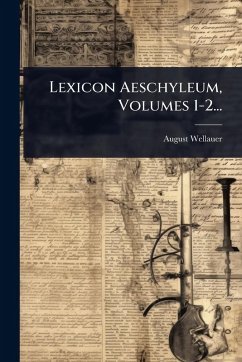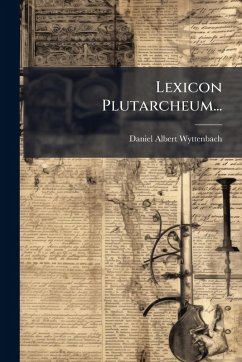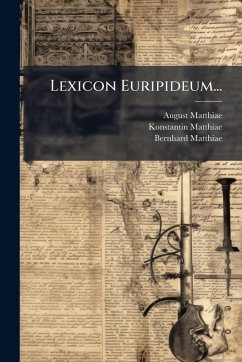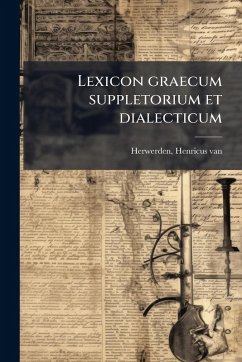
Prosodiacal Lexicon of the Greek Language; Collected From the Heroic Poets. Translated From the German
Versandkostenfrei!
Versandfertig in über 4 Wochen
18,99 €
inkl. MwSt.

PAYBACK Punkte
9 °P sammeln!
"Prosodiacal Lexicon of the Greek Language" is a meticulously compiled reference work designed to aid scholars and enthusiasts in understanding the nuances of ancient Greek poetry. Translated from the German, this lexicon focuses specifically on the prosody-the patterns of rhythm and sound-found within the works of heroic poets. It serves as an invaluable tool for interpreting the meter, pronunciation, and overall musicality of classical Greek verse. Collected by Johann Friedrich Christoph Gräffe, this lexicon provides detailed explanations and examples drawn directly from the texts of ancien...
"Prosodiacal Lexicon of the Greek Language" is a meticulously compiled reference work designed to aid scholars and enthusiasts in understanding the nuances of ancient Greek poetry. Translated from the German, this lexicon focuses specifically on the prosody-the patterns of rhythm and sound-found within the works of heroic poets. It serves as an invaluable tool for interpreting the meter, pronunciation, and overall musicality of classical Greek verse. Collected by Johann Friedrich Christoph Gräffe, this lexicon provides detailed explanations and examples drawn directly from the texts of ancient Greek heroic poems. Students of classical literature will find this book essential for unlocking the deeper layers of meaning embedded within the rhythmic structures of the language. Its enduring value lies in its capacity to bridge the gap between contemporary readers and the rich, complex world of ancient Greek poetic expression. This work has been selected by scholars as being culturally important, and is part of the knowledge base of civilization as we know it. This work was reproduced from the original artifact, and remains as true to the original work as possible. Therefore, you will see the original copyright references, library stamps (as most of these works have been housed in our most important libraries around the world), and other notations in the work. This work is in the public domain in the United States of America, and possibly other nations. Within the United States, you may freely copy and distribute this work, as no entity (individual or corporate) has a copyright on the body of the work. As a reproduction of a historical artifact, this work may contain missing or blurred pages, poor pictures, errant marks, etc. Scholars believe, and we concur, that this work is important enough to be preserved, reproduced, and made generally available to the public. We appreciate your support of the preservation process, and thank you for being an important part of keeping this knowledge alive and relevant.












